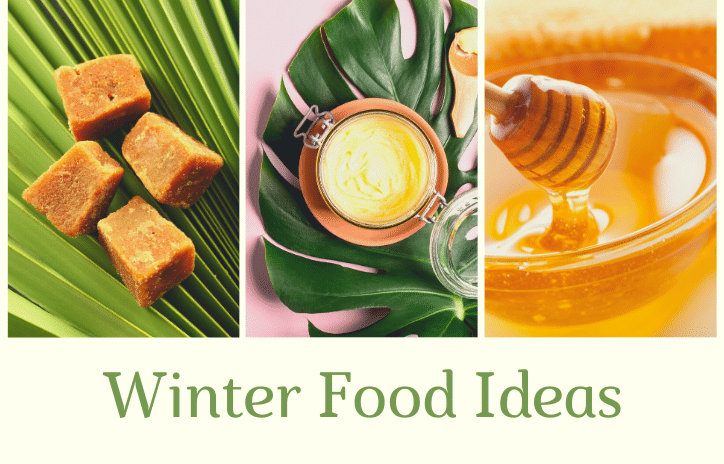You can’t beat the icy fang of cold with just a jacket and blanket. Food plays a vital role during the winter months to maintain our health. Food is the cause and cure for most diseases. Many of you get sick during the winter. This is because we all prefer to stay indoors when the outside environment is cold. In this way, we breathe in others’ germs due to closeness, and we can quickly get sick.
But by watching what you eat, you can avoid becoming susceptible to airborne infections like colds and flu. One of the reasons for an extreme cold can be a lack of nutrients and vitamins in your diet and daily diet. So here are some foods that you can add to your daily meal that will not only make up for your lack of vitamins but keep you warm as well.
Types of Food to Eat in the Winter Season
Jaggery
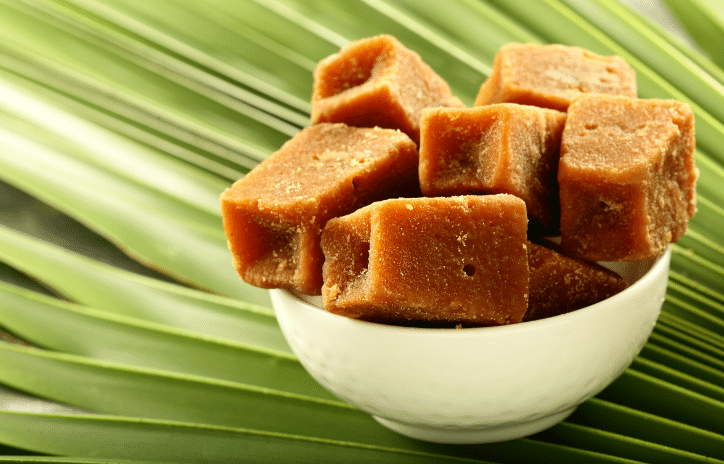
It is considered warm food, and it can be consumed in a variety of ways. It is healthier than sugar. It contains several vitamins and minerals like phosphorous, iron, magnesium, and potassium and is a natural cure for cough, cold, migraine, asthma, fatigue, and indigestion. Consuming jaggery in winters helps in generating enough heat in the body, thus keeping you warm inside. Taken along with fresh ginger, it cures cough.
Cooked with Natural Oils, Desi Ghee, and Butter
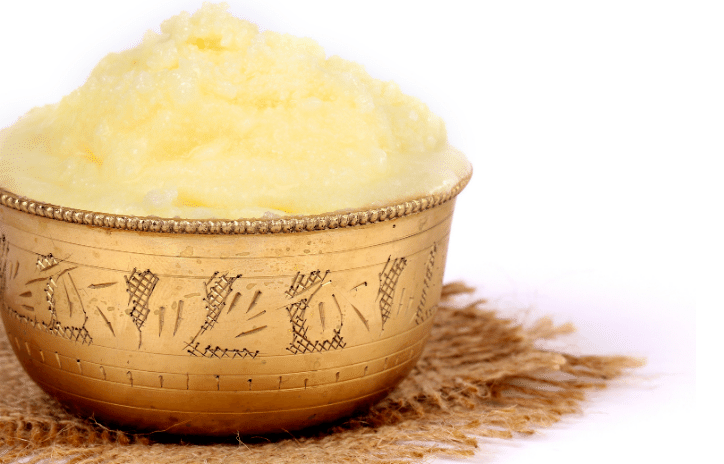
It’s already delicious, but let’s see why these foods are great for winter. According to Ayurveda, your body’s digestive power is equivalent to fire. It is believed to support your more excellent immunity from your digestive processes. This critical “fire” is reduced to winter as we become idle. Consuming natural oils, butter, and desi ghee help maintain the normal functioning of the digestive system. Due to this, one can boost immunity and not get sick.
Drink Green Tea
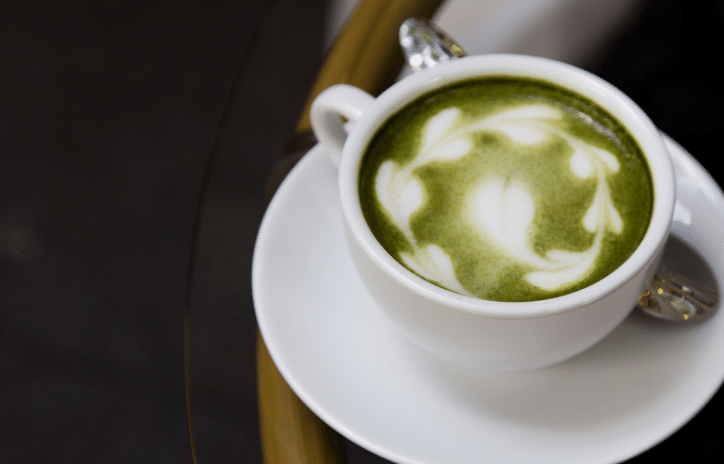
Drinking green tea can improve your body’s ability to fight disease. This is mainly because the glass has anti-ID oxidant properties and helps fight free radicals in the system. It also inherits a small amount of caffeine, which can help you overcome laziness in cold weather!
Sesame or Til
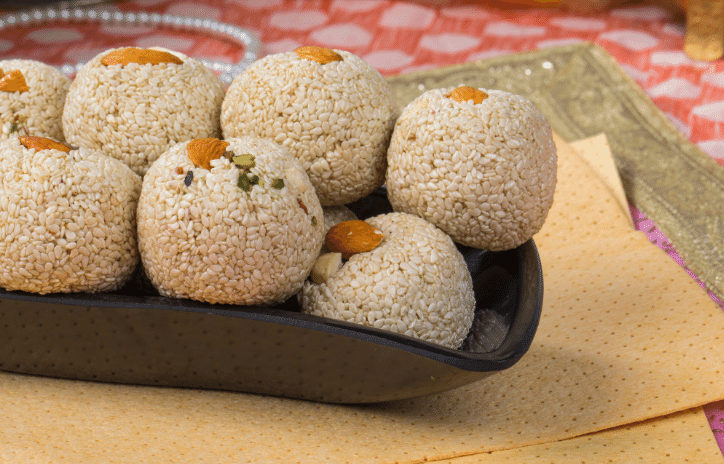
Pancakes, sticky candies, sweet balls, chikkis, and gajaks are the best way to consume sesame. It makes an equal share of all winter cuisines and rituals in India. This ensures that even the most impoverished people consume sesame seeds to keep them warm. Sesame infusion helps reduce respiratory disorders such as pneumonia, bronchitis, and asthma. Sesame paste helps to cure dandruff when applied to hair.
Mix Yoghurt with Meals
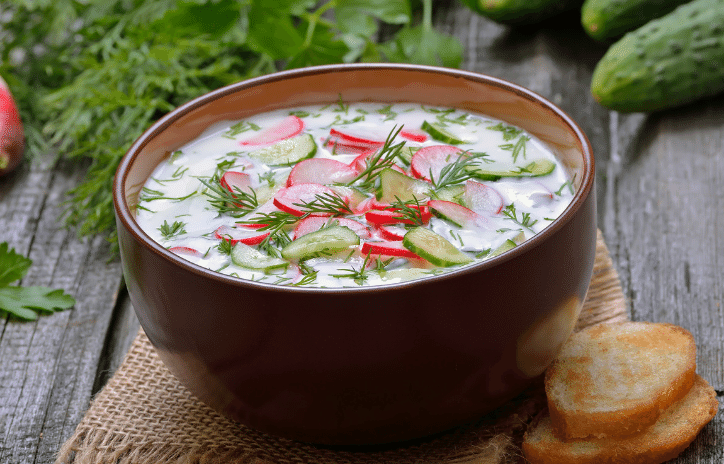
Yogurt is a natural probiotic. This means it has good gut bacteria. Good gut bacteria are healthy species of bacteria located in your gastrointestinal tract and support normal digestive functions. They help keep your body away from infections and diseases as their presence affects various parts of the body, including immunity.
Ginger and Tulsi
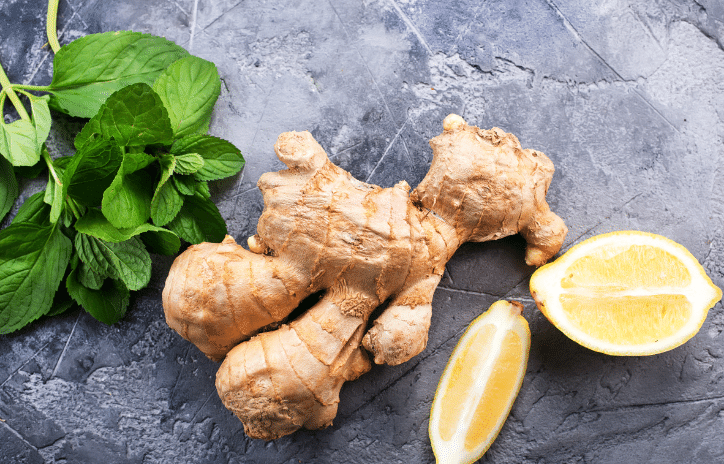
Ginger not only enhances the taste of our tea but also helps keep us warm, as ginger contains a substance used for medical purposes. It helps with many types of nausea and is also used to reduce body pain. A good cup filled with ginger helps a lot to keep warm. Now, sizeable flavored basil leaves (commonly referred to as holy basil) have long been used for Ayurvedic medicines because it has medicinal properties of high blood pressure, high cholesterol, headache, skin diseases. It is used to treat eye diseases and many other ailments. Therefore, it is a good idea to add ginger and basil leaf to your tea.
Grains and Complex Carbs
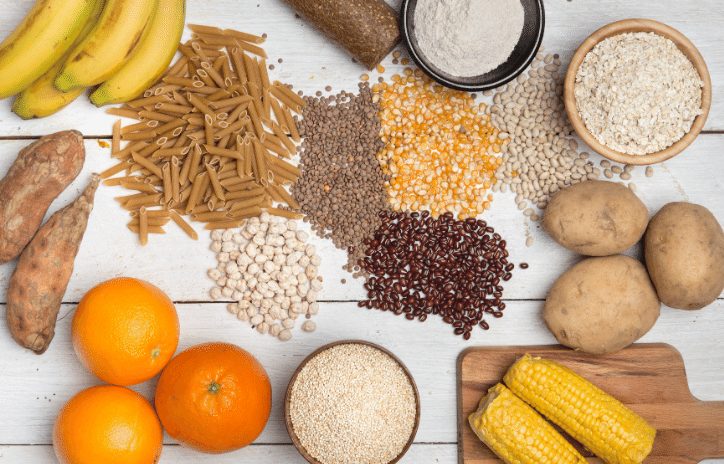
Because fiber grains and complex carbs are present, our stomachs are challenging to digest, and our digestion requires hard work to digest them. To break down these fibers and carbs into essential proteins and minerals, to create body heat and keep us warm. He has to struggle. It is like fuel for the engine to work and dissipate heat.
Eat Salmon
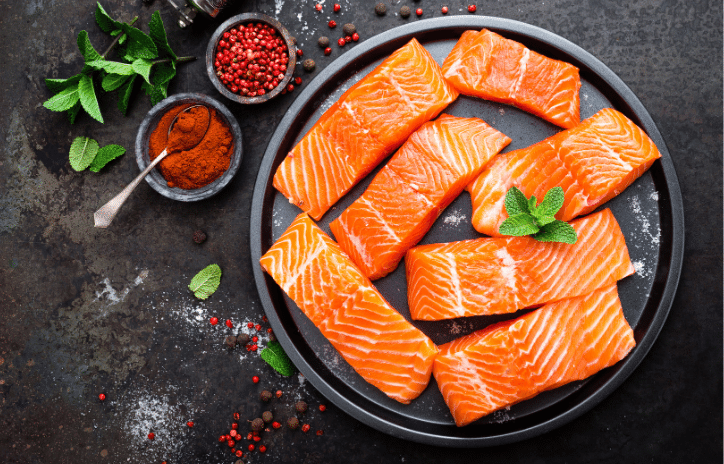
There are many types of salmon that carnivores generally prefer. Salmon is an essential food to add to your winter diet plan. This is because this fish helps increase the number of T cells in the immune system. People with high T cell doses are less likely to get sick. Also, salmon helps obtain essential nutrients such as vitamin D, which are difficult to obtain naturally from the weak winter sunlight. It is also rich in protein and omega-3-fatty acids.
Honey
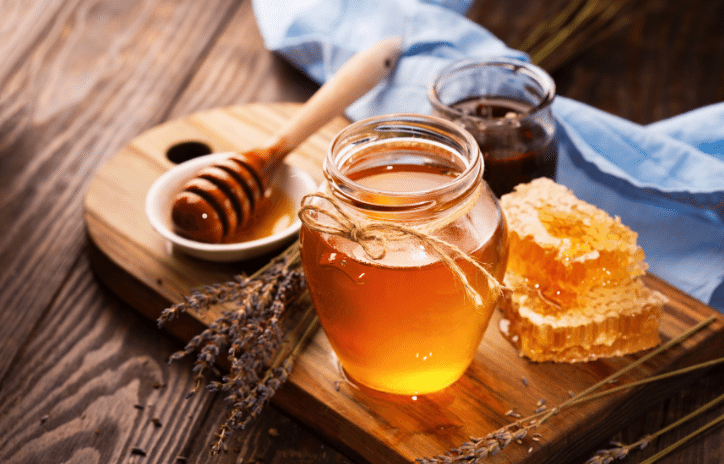
Honey is considered hot, and hence it’s overconsumption in the summer is prohibited. It is an essential ingredient in Ayurvedic medicine for coughs and colds. It contains low levels of antigens found in flowers and helps boost immunity. The excellent news for food-conscious people is that having upside-down sugar doesn’t make it fat; it’s easier to digest
Eggs
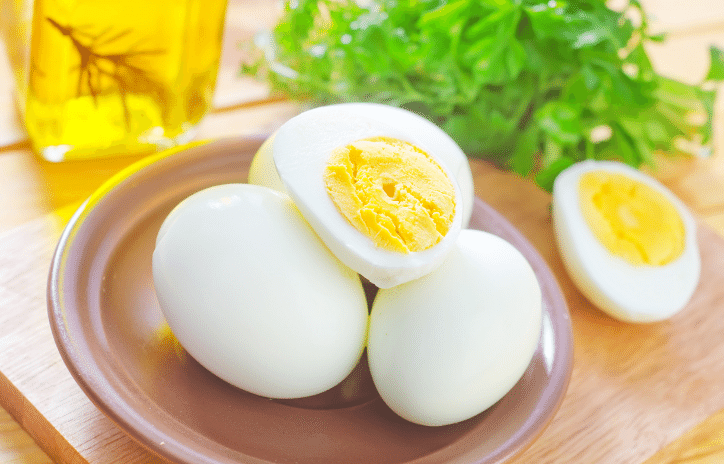
Eggs are in high demand in winter, as they are not only the driving force for energy, but they are also rich in protein and vitamins that help fight winter infections.
Water

Yes, the proper drinking water is one of the most transparent and straightforward ways to keep our body warm or to use water to maintain body temperature at its best. In the winter, we don’t feel the need to have more faith or water in the body because we don’t sweat in the winter, but water is essential to the body in many ways, as water is responsible for the fluidity of our blood. Drinking water increases the fluidity of the blood. It makes it easier for the blood to carry all the necessary components to the body’s cells and, by doing so, increases the energy of the body. You can bring a bottle of water with you as a reminder.
Milk
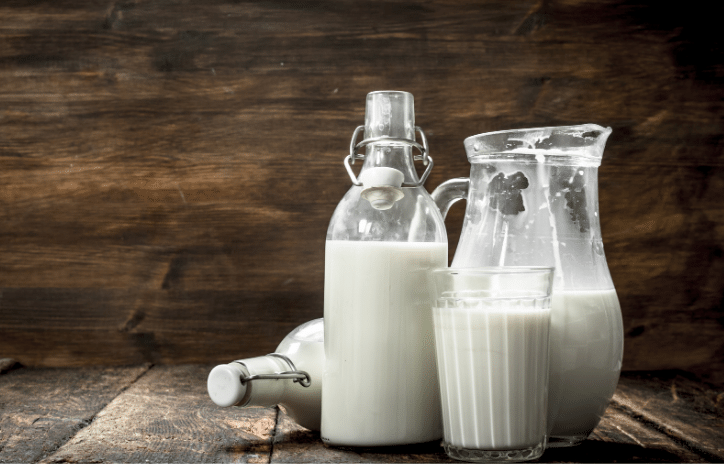
If you are unable to keep up or don’t have enough time or resources to add some or all of the above foods, there is just one thing you can do to stay warm all day. You can have a full glass of milk in your breakfast that will give you enough energy to work through the day and feel full until lunch. Milk is one of its foods because it contains almost all the essential minerals and vitamins that our body needs to meet our daily needs.

